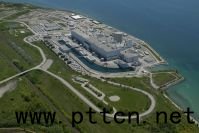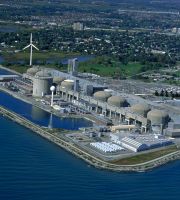|
The network will be installed at the Darlington and Pickering nuclear power generating stations. A TETRA-based emergency communications set-up was chosen after the OPG researched different radio technologies. It concluded that TETRA’s spectral efficiency, voice quality, value for money and data services provided the best solution. The system, which uses PowerTrunk-T deployable base station equipment, will provide wireless communication throughout the sites. This includes the reactor buildings of the two nuclear stations. Radio coverage will be supported for outdoor and indoor areas in both facilities.
“We are currently experiencing a shift in the local market of professional radio communications network users, whether in the utility, municipal, energy, transport, or public safety sector,“ said David Torres, vice president of sales Canada, for PowerTrunk. “Agencies in both Canada and the US are realising what the rest of the world has known for years – that the enhanced voice quality and data functionality provided by TETRA, and PowerTrunk’s world-class systems, are the best solution for mission-critical or emergency communications.” The need for change In 2011, a magnitude 9.0 earthquake followed by a tsunami struck the east coast of Japan. This caused widespread damage, including a loss of safety equipment and power at the Fukushima Daiichi Nuclear Power Station. With no back-up battery, internal and external telecommunication links at the station were left severely crippled or completely severed. After the Fukushima Daiichi disaster, assessments were made to discover if OPG could respond to a BDBE at the Darlington and Pickering nuclear stations. These were based on the events of Fukushima. The results found that existing telecommunications for emergency response could not be relied on, as the systems were not robust enough to survive. Images: top to bottom, Darlington and Pickering nuclear power stations (中国集群通信网 | 责任编辑:陈晓亮) |

 PowerTrunk, a radio systems provider, has been selected by
PowerTrunk, a radio systems provider, has been selected by  Beyond design basis events (BDBE), which can result in an extended loss of AC power, make it necessary to support emergency communications at OPG. The system will also integrate with a satellite network to enable communications while at external locations.
Beyond design basis events (BDBE), which can result in an extended loss of AC power, make it necessary to support emergency communications at OPG. The system will also integrate with a satellite network to enable communications while at external locations.